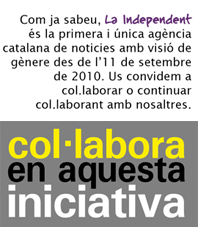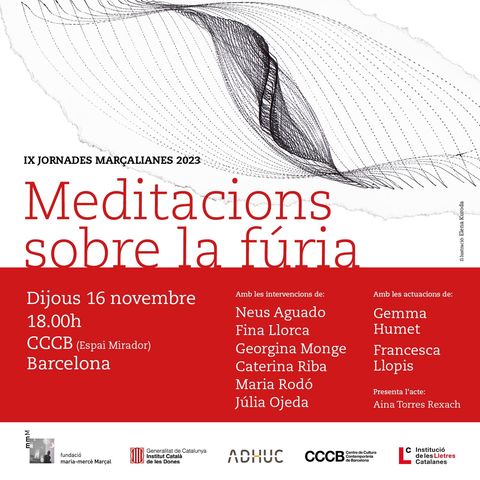This public declaration is a response to the repressive measures taken by the Spanish government in order to prevent the celebration of a referendum on the independence of Catalonia on October 1. The aggressive measures already taken and/or announced have led to a dangerous situation that could interfere with “the fundamental rights to freedom of expression, assembly and association, and public participation”, as denounced this week by the office of the United Nations High Commissioner for Human Rights. Indeed, Spanish authorities have infringed on basic democratic rights, and have created a de facto State of emergency, which cannot be legally declared without parliamentary approval. The extreme measures that are being taken, have produced a massive civic response against them on the part of Catalan people, as international observers have already observed.
This declaration calls for support for the celebration of the referendum, and it is not an endorsement of a particular outcome (pro or against independence). We call specifically on intellectuals who wish to stand in solidarity with the request to ensure that basic democratic rights are respected in Catalonia, but the petition is open to any concerned citizen.
This public declaration has been signed by roughly 150 influential and prestigious thinkers from different disciplines, such as political theory, sociology, literary studies, philosophy, history, art, cinema, etc, whose professional activity takes place in different countries around the world. It includes, among others:
Étienne Balibar, Bruce Bégout, SeylaBenhabib, Wendy Brown, Yvette Centeno, Gerard Delanty, Donatella della Porta, Mario Diani, Ida Dominijanni, ÉricFassin, Marisa Forcina, Simona Forti, Geneviève Fraisse, Jill Godmilow, Michael Hardt, Wolfgang Fritz Haug, Miroslav Hroch, Rada Ivecovi?, Martine Leibovici, AntonisLiakos, Catherine Malabou, Charles Mills, Toni Negri, Pablo Oyarzún, Susana Romano-Sued, Peter Szendy, Enzo Traverso, Chiara Zamboni, IdithZertal.
Those interested in supporting this declaration can do so through the website referendumnotwar.wordpress.com
English referendumnotwar
Not so long ago the international public was being led to interpret the current Catalan conflict as a nationalist one connected to the most disastrous past in the history of twentieth-century Europe. The ghosts of past wars blurred the vision as to what was really at stake. The events of these last days have begun to dismantle this interpretative framework. They urge us to revise the dominant superficial interpretation which may have caused the troubling reticence of much of the international public to consider this case nothing more than a localized, domestic affair. What has become clear in the past few days, irrespective of the positions for or against the independence of Catalonia, is the tension between the authoritarian inertia of a certain understanding of state power, on the one hand and on the other – the existence of precarious but determined attempts to build political strategies oriented towards the normative horizon of our democracies.
Over the last years, the majority of Catalan society (60% according to the last 2015 elections; roughly 80% according to official surveys) has repeatedly expressed the will to decide democratically its own political status. Faced with this demand, the Spanish state, which can by no means be seen as either embodying or expressing the diverse sensibilities and political aspirations of Spanish society as a whole, has systemically neglected its political obligations.
The Spanish state has rejected all attempts at negotiations for holding a legal and mutually agreed upon referendum on self-determination, thus denying the depth of the conflict in Catalonia. Moreover, the same state now condemns this referendum for not being reliable or legally binding, but they have consistently opposed the possibility of providing the legal framework to make it so
Despite the parliamentary impossibility of legally declaring a state of exception, as outlined in the Spanish Constitution of 1978, the Spanish executive power has undermined the rule of law by applying de facto measures fully consistent with a state of exception in order to prevent the October 1 referendum convened by the Parliament of Catalonia. This has effectively turned the Spanish state into what some contemporary thinkers have labelled a rogue or authoritarian state:
The right of assembly and demonstration has been limited both in Catalonia and in Spain and civil organizations are prosecuted for sedition.
Public officials and senior elected officials have been arrested for coordinating the logistics of the referendum.
More than 700 mayors, out of 948 in total, have been summoned to trial that can result in their disqualification for the exercise of public office.
The media have been registered by the police to limit the right to a free press whereas journalists and intellectuals are threatened by the Spanish state for having informed the public about the referendum.
Parliamentary political parties such as the CUP (Popular Unity Candidacy) are under police surveillance.
Voting materials (ballots, electoral information, etc.) have been confiscated and premises of private companies have been searched without judicial order.
Public access to websites related to the referendum is censored.
Freedom of political opinion and communication has been violated systematically and gravely.
The overcoming of the rule of law by the state power contradicts the founding principles of a democratic constitutional European state, which is the outcome of two processes: first, the fulfillment of the democratic aspirations of modern European societies and second, ending arbitrary state actions.
For all these reasons, we call on our fellow citizens in other countries to condemn the authoritarian logic and actions that is being mobilized in Catalonia at this moment. In particular, we urge our European neighbors to speak up in favor of holding a referendum in Catalonia to be both a concrete instrument to overcome the authoritarian logic that has so often destroyed the lives of modern political societies and, from a European perspective, a way to move towards a post-national political culture in which conflicts of this sort can be decided through non-violent procedures.






